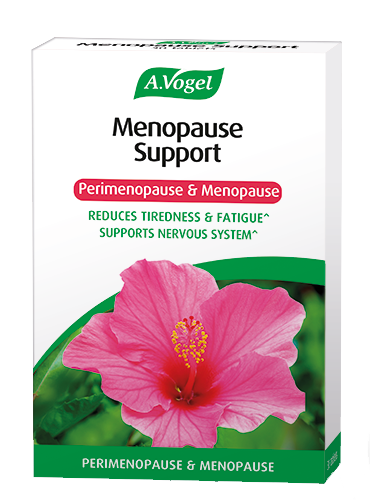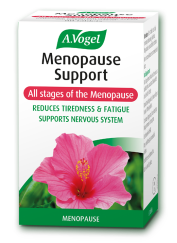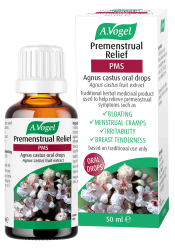An introduction to periods and low libido
Many women complain of suffering from low libido. It can be a real worry and put a massive strain on close relationships. But, have you noticed if your changing desires are in sync with your menstrual cycle? Very often libido is cyclical and if your hormones are particularly wobbly you could suffer as a result of this. So yes, menstrual periods could be having a part to play and if so, there could be some solutions.
On this page I explore the key reasons why your menstrual period can have an influence on your sexual desire. Sexual desire actually falls into two categories: libido is the mental desire and then you have the physical arousal aspect, one or both might be lacking and I explore the causes of each. I then go on to discuss some home and herbal remedies which could help to give your libido a lift.
How can your period cause low libido
There are several ways in which your menstrual cycle could be linked to a loss of libido
- Hormones – Hormones are often a big influencing factor when it comes to libido. Sex drive is thought to be cyclical and very often peaks around day 14 of a women’s cycle when she is ready to ovulate. Around the time of ovulation, your oestrogen levels are high. Oestrogen helps address both the mental and physical aspects of low libido. Oestrogen has a role in influencing your mood and also helps support lubrication and stimulation of the genitals – it is often thought of as the ‘stimulating’ female sex hormone as opposed to progesterone. However, as the month progresses, oestrogen levels gradually fall and progesterone becomes high relative to this. This means the stimulating effects of oestrogen are diminished which can affect your libido. Interestingly though, as your period starts, your levels of oestrogen gradually start to rise again, and also, relative to oestrogen and progesterone, testosterone levels are high at this point which can actually produce sexual urges. It isn’t unheard of to see a lift in your libido as you begin to menstruate
- Physical effects – Your period can actually have a physical effect down below. As your uterus thickens in the second half of your cycle in preparation for menstruation, it is possible that nerve endings can become dampened in and around your womb. This could potentially affect your physical arousal and chances of having an orgasm
- Other symptoms of periods – Other symptoms of your menstrual periods could affect your libido. If you feel bloated, or experience painful or heavy periods, having sex is likely to be the last thing on your mind. The psychological aspect can also play a part, as many women feel angry, irritated or suffer from low mood which can affect your relationship with your partner
- Medication – If you are already on medication to help regulate your periods, or to deal with some of the symptoms, ironically this can affect your sex drive. The pill, for example, means you receive a steady stream of hormones and you don’t ovulate, so, often you miss out on the benefits of having a significant spike in oestrogen. Other medication, for example anti-depressants, can influence your sex hormones and libido, so always be aware of any side effects of drugs
- Insufficient support from your partner – Periods can be troublesome! More so if you have a disorder of the womb such as endometriosis, or if you have PMS or are approaching the menopause. If you don’t have a supportive partner who understands what you are going through this can put an added strain on your relationship. It is always nice to talk about how you are feeling and remember they might not actually know the full extent of your symptoms!
Diet and lifestyle factors
There are some really simple home remedies which you can try to help reignite your libido:
- Make the time for each other! – Despite it being your ‘time of the month’ it’s important to make the effort to communicate with your partner and still make time for each other. Always aim to be enjoying yourselves no matter what day it is. Have a date night, go out for a nice meal or go to the cinema together, this will help to make you feel more connected and is likely to help with your other symptoms such as low mood. Get out of old routines and try something new
- Do some exercise – Exercise helps to get your blood moving. This means blood gets pumped to all your extremities and nether regions! Although you might use being on your period as an excuse not to take part, exercise can increase feel-good chemicals called endorphins which can help with a range of other symptoms such as mood swings and cramp
- Limit stress – Stress affects many of us nowadays with work, money issues and family problems often getting in the way of your sex life. Mood swings and issues such as anxiety can be made worse by fluctuating hormones and they can all get on top of you at certain times of the month. Address your stress and it could give your libido a lift
- Watch your alcohol intake – Alcohol has detrimental effects on your nervous system and it dulls your senses. Many people assume alcohol helps them relax or that it can help with pain, but actually, it will only make many problems worse in the long run. Being under the influence could affect your libido in the first place, and then, if you actually go on to have sex, it probably won’t be as enjoyable and you are less likely to have an orgasm.
Natural remedies to help
There are some herbal remedies that could help if you find you have a lack of libido around the time of your period.
- Soy isoflavones – If low libido appears to be cyclical and occurs in combination with other symptoms of your menstrual period, it is likely you have some sort of hormone imbalance. Oestrogen is thought to be partly responsible for physical arousal and sex drive in women and an imbalance could be contributing to a loss of libido. Other signs of low oestrogen include suffering from low mood, low self-confidence, feeling very tired and having skin issues. Soya isoflavones help to gently address the hormone imbalance as they support oestrogen receptors
A.Vogel Menopause Support | For Perimenopause, Menopause & Postmenopause Symptoms
£8.99 (30 tabs) In Stock
- Stress – Stress, anxiety, irritability, anger or other similar mood swings may result in you distancing yourself from your partner at certain times of the month. AvenaCalm is a licensed herbal remedy specifically formulated to help address mild stress or anxiety.
Please note, if you are taking hormonal contraceptives such as the pill, hormone-balancing herbal remedies may not be suitable for you.
How can my doctor help?
If you are worried about your lack of libido and it is affecting your intimate relationships it might be time to pay a visit to your doctor.
If hormonal factors are indeed to blame, they may suggest a form of hormonal treatment. This can help to balance your hormones but beware as very often they have their own side effects and a lack of libido can be one of them!
Your doctor can also look into any other possible contributing factors such as psychological factors or how your thyroid gland is functioning.









